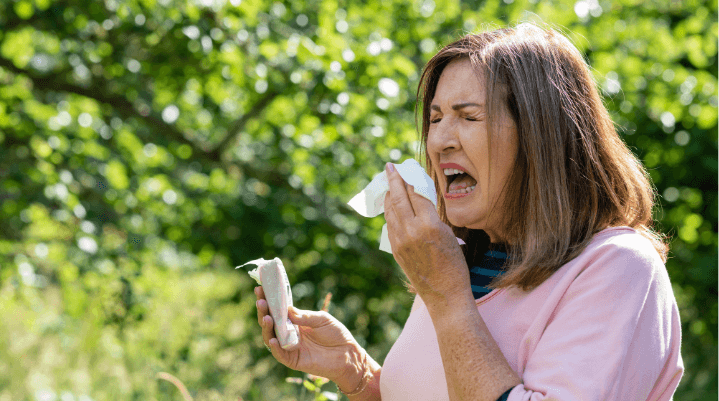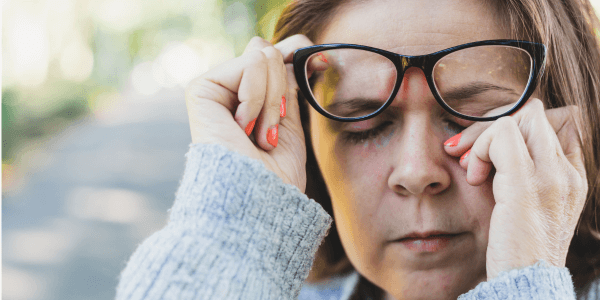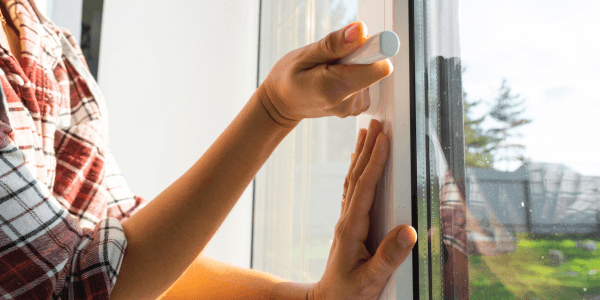Can I develop hay fever as an adult?

With spring just around the corner, you may start to feel that familiar feeling of hayfever creeping up on you.
Affecting between 10% – 30% of all adults in the UK, it is one of the most common allergies and although it typically begins in childhood or as a teenager, it can develop as an adult.
Tree pollen first occurs from late March to mid-May, while grass pollen tends to last from mid-May until July. Most people are allergic to grass pollen, though some are also affected by weed and tree pollen.
We spoke to Dr Runa Ali, consultant physician in allergy and asthma, about why hay fever may develop as an adult and what you can do to ease hay fever symptoms.
What is hay fever?
Hay fever is an allergic reaction to pollen, typically when it comes into contact with your mouth, nose, eyes and throat.
The symptoms of hay fever can include:
- Sneezing and coughing
- Runny or blocked nose
- Itchy, red or watery eyes
- Itchy throat, mouth, nose and ears
- Loss of smell
- Pain around your temples and forehead
- Headache
- Earache
- Feeling tired

How can you develop hay fever as an adult?
Around a third of adults in the Western world are thought to be potentially susceptible to developing an allergy, and this is written into our genes. However, that does not mean these people will go on to develop allergic symptoms.
Dr Runa Ali, explained: “Most people only carry antibodies to viruses and bacteria, but a third of people also carry antibodies to common things such as pollen or peanuts. However, of this number, only half will go on to develop real-life symptoms.”
A lot is still unknown about what exactly can cause an allergy to flare up in later life, but experts have plenty of theories.
“Hypotheses about what might shake up your immune system include suffering a severe infection like pneumonia, being exposed to pollution or going through hormonal changes,” Dr Ali said.
“However, even if we identified the people who were susceptible, it wouldn’t give us any warning about who will end up being allergic and who wouldn’t. In fact, if you were positive to a certain allergen, you might avoid it, but in fact, exposing yourself might keep you tolerant!”
Other possible triggers for developing an allergy like hay fever as an adult include lifestyle changes such as moving home – for example to a large city with more pollution – or changing your diet, with some meat and dairy products, as well as alcohol, containing histamines or triggering a histamine release in the body.
How can I alleviate my symptoms?
There is no cure for hay fever, but there are a number of over-the-counter medicines you can take to help alleviate symptoms, such as antihistamine tablets, sprays and eye drops. Speak to your pharmacist to find the right treatment for you.
Other tips include closing your windows, showering regularly and washing your clothes to remove any pollen from them.
Pollen levels tend to be especially high in the evening, so consider using a fan rather than opening your windows in the evening to help with sleep.

Ways you can help with your hay fever:
- Put Vaseline around your nostrils to trap pollen
- Wear wraparound sunglasses to stop pollen getting into your eyes
- Shower and change your clothes after you have been outside to wash pollen off
- Stay indoors whenever possible
- Keep windows and doors shut as much as possible
- Vacuum regularly and dust with a damp cloth
- Buy a pollen filter for the air vents in your car and a vacuum cleaner with a Hepa filter
- Try to stay at home and avoid contact with other people if you have a high temperature or you do not feel well enough to do your normal activities
It is also recommended that you do not do the following:
- Cut grass or walk on grass
- Spend too much time outside
- Keep fresh flowers in the house
- Smoke or be around smoke – it makes your symptoms worse
- Dry clothes outside – they can catch pollen.
More information
- If you’re struggling with allergies, contact your GP in the first instance. If you don’t have a GP, you can book an appointment with one of our private GPs.
- We also have a specialist Allergy Department here at the King Edward VII’s Hospital in Central London, that treats patients in the diagnosis and treatment of allergies.









